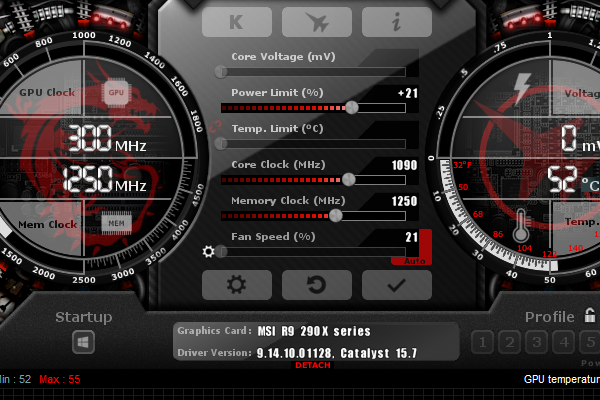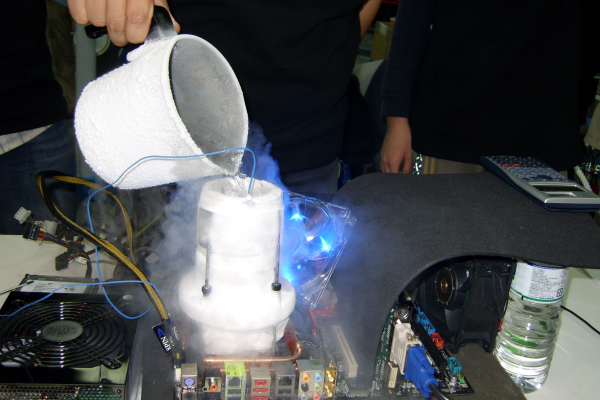13 Tips, Tricks And Secrets To Boost Your PC Gaming Performance
1. ... But Feel Free To Give It A Little Tweak
With all that said, if you have itchy fingers and just can't resist giving the overclockometer (not a real name) a tweak, then there's no harm in you cranking it up just a little bit. I'll demonstrate how to do this with MSI Afterburner, but other good options are GPU Tweak and EVGA Precision X. Here is the guide to do a basic bit of overclocking: Aside from MSI Afterburner, you'll need MSI Kombustor to stress-test your overclocked GPU. Once you have both, open MSI Afterburner and increase the Power Limit slider to +20. This will ensure that the GPU will have enough power for the overclocking. Next, move the 'Core Clock' slider up by around 50 MHz and make sure your Fan Speed is set to auto. Your graphics card is now set to overclock (slightly). Next, open Kombustor and set the resolution and anti-aliasing to what you'd normally use for your gaming, then click 'Start stress test'. Run this for around an hour and keep track of the temperature and stability. If it's not crashing, and the temp's going no higher than around 85C, then you'll be safe to play games at that clock speed. If you want to keep increasing your clock speed, then do it in small increments of no more than 50 Mhz, and use Kombustor to test its stability each time.
2. Don't Go Crazy On The Overclocking...
So you've just bought or built your new gaming rig, and have heard all the hype on tech forums about overclocking; revving that baby's graphics card up until it sounds like a jet engine and is emitting the same amount of heat as one. The idea behind overclocking is that by turning your GPU's clocks speeds beyond what they were 'out of the box' you can run your games faster. You could turn a 1 GHz clock speed on your graphics card up to 1.4 GHz, for example. But if you're unfamiliar with the world of overclocking, and your games are running well anyway, then don't feel like you have to do it. Overclocking can improve performance, sure, but for a lot of people it's mainly about seeing how far they can push their cards Overclocking also generates a lot more heat, in which case you need to think about replacing your GPU cooler with a better one (which can void the warranty) or buying a heatsink. Unless you're prepared to shoulder the risk that your hardware might break, and take into account the many precautions to avoid damaging your PC, then it's an area best left alone.






No comments:
Write comments